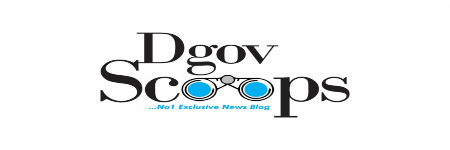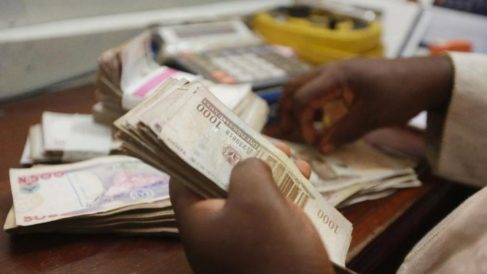Moses Oba
• ‘Timing coincidental, nothing to do with IMF, World Bank’
• Economists advocate currency, lifestyle audit
• Moghalu, Sanusi, others disagree on exchange rate unification
The country’s fiscal state faces tougher times as the Central Bank of Nigeria (CBN) bowed to pressure, last week, and further devalued the local currency.
The adjustment of the exchange rate at the busiest window is coming three months after the local currency was similarly devalued by 24.6 per cent, a decision that has worsened the inflationary pressure and interest rate.
Bloomberg reported at the weekend that the CBN raised the rate at the Secondary Market Intervention Sales (SMIS) – a window where importers access foreign currencies – from N360/$1 to N380/$1 with an instruction to bidders to comply accordingly.
The directive came less than two weeks after CBN Governor Godwin Emefiele hinted that the apex bank was moving towards ending the multiple-rate regime.
As at press time, it was not clear whether the latest adjustment would mark the commencement of the planned rate harmonisation. Efforts to confirm this and the validity of the directive, which is yet to be officially announced, failed as the CBN spokesperson, Isaac Okorafor, did not pick his call or reply to text messages.
But one of the CBN Governor’s advisers, who didn’t want to be named, told The Guardian: “It is not true that we came under pressure or that it was a condition by the two institutions, though they have been wanting us to unify our exchange rate regimes.
“Remember that in 2017, we needed a loan from them. They insisted and we told them no and we went for Euro bond. We could still have gone elsewhere if we were not desirous of adjusting our rate, which is our core strategic action undertaken from time to time, depending on the economic realities.
“So, we did it at this time and it just merely coincided with the time we are seeking assistance from them. Please, ignore such insinuations. The adjustment here had nothing to do with IMF. After all, IMF has already released its own funds to us. So, it has nothing to do with either the IMF or the World Bank or their assistance.”
The harmonisation, however, is a subject of debate among market operators and economists. Former CBN Governor Sanusi Lamido Sanusi raised the alarm that its implementation would fuel speculation and worsen the fortune of the naira. But Kingsley Moghalu, a professor of International Business and public policy at the Tufts University Fletcher School of Law and Diplomacy, United States, said “rate unification” would provide the “level playing field” required for inclusive growth.
Moghalu, who had earlier said the country could not continue to ignore the need to devalue the naira, was Sanusi’s Deputy in charge of Financial Stability. Both led the Central Bank, managing the highly sensitive foreign exchange market for five years.
Moghalu would not comment on how the rate unification would address currency profiteering and black market dealing – the twin troubles dictating the historical woes of the naira since the implementation of the Structural Adjustment Programme (SAP) in the 1980s.
Also, Tope Fasua, Development Economist and Chief Executive of Global Analytics Consulting, said the adjustment was voluntary. He noted: “The market has always asked for the elimination of parallel and discriminatory prices. As utopian as that sounds in our context, it is an ideal position to aspire to. The CBN is methodically pursuing how it can achieve a more streamlined market and escape the usual blame and opprobrium from believers of a perfect market.
“I believe it is an indication of a weaker, less subsidised naira for the immediate and near future, a reality which supports the general weakness of the economy in the face of several buffers such as COVID-19 and general economic slowdown.
“The move will give the naira some stability in the immediate term. But the CBN should be wary of the activity of speculators. The Bank’s strategy must be dynamic, so that the naira does not spiral.”
But, Godwin Owoh, a professor of applied economics, said rate unification and devaluation are rooted in the corrupt practices and market manipulation that have brought the naira to its knees. He said a detailed structural audit of the management of the market is more important than rate harmonisation, just as he raised the alarm that the effect of the current human capital ‘rigging’ in the apex bank would be more noticeable in the coming years.
He also called on the government to embark on a holistic “currency and lifestyle audit” as necessary measures to save the naira from continuous depreciation. According to him, the naira is challenged by external/moral factors than it is by market forces.
“A common trader that is incorrupt and politically independent would give us a better result than we currently get. The problems of the naira are not market triggered; they are manipulated. The market is manipulated,” he said.
Owoh queried: “Where is the pressure on the naira coming from? Who is buying up the dollars? I am not convinced about whatever measures the Central Bank wants to put in place to manage the challenges unless we clean up the books.”
He advised that the way out is to “conduct a census on both local and foreign currencies. Who has what? What are the sources of the money individuals hold? How legitimate are the sources? India, as large as its population is, conducts a currency census every seven years.
“This is a physical audit of the currency in circulation. It helps you to know the distribution. This will help us to establish that the local currencies that are pursuing the dollars are genuine. If the currencies were coming from legitimate business activities, there would be no serious distortion as we have. What is responsible for the high buyback in the few months when the economy has been on hold?
The professor of applied economics added: “We have also come to a stage when a lifestyle audit is necessary. We should audit the lifestyle of individuals with a huge volume of currencies, to be sure of where the distortion is coming from. We can use denomination change to carry out the currency and lifestyle audit. People should be made to declare their cash holdings physically.”
There are fears that the continuous devaluation of the naira would worsen the living standards of Nigerians through a high rate of inflation and unbearable interest rates.
Head of Investment Research at Afrinvest Securities, Abiodun Keripe, said the latest devaluation, which he described as an entry point of the harmonisation, would certainly trigger a higher inflation rate.
The new rate, which Keripe puts at between N400 and N410/$1, is below market expectation. He noted that all commodities, including locally sourced ones, would respond to the exchange adjustment.
Justifying the pressure on the naira, the investment expert said there is currently about $1 billion unmet dollar demand at the capital market just as manufacturers have not stopped the importation of raw materials.
On the unabated demand for dollar via mail exchange with The Guardian, yesterday, a financial expert, Dr. Abiodun Adedipe, said: “I see this more as speculation because the effects of COVID-19 are yet to wear out (demand and supply shocks, and troubled supply chains plus struggling economies). So, what is driving the demand for foreign currencies? To buy what? There is a bubble in the parallel market rate, fueled by an attitudinal deficit.”
Adedipe, who described the call for rate harmonisation as misplaced, said the naira would continue as a troubled currency until the country begins to look “inward”.
“I have said this, repeatedly, in the last 30 years or thereabout that the parallel market will continue to thrive in Nigeria until such a time that we produce, locally, most of what we consume and Nigerians deliberately begin to consume what is made in Nigeria without our penchant for saying, ‘it is better quality if it is imported’.
“The demand for foreign currency is largely derived, except for speculators whose appetite can be quashed when we all look inwards,” he added.
Guardian


